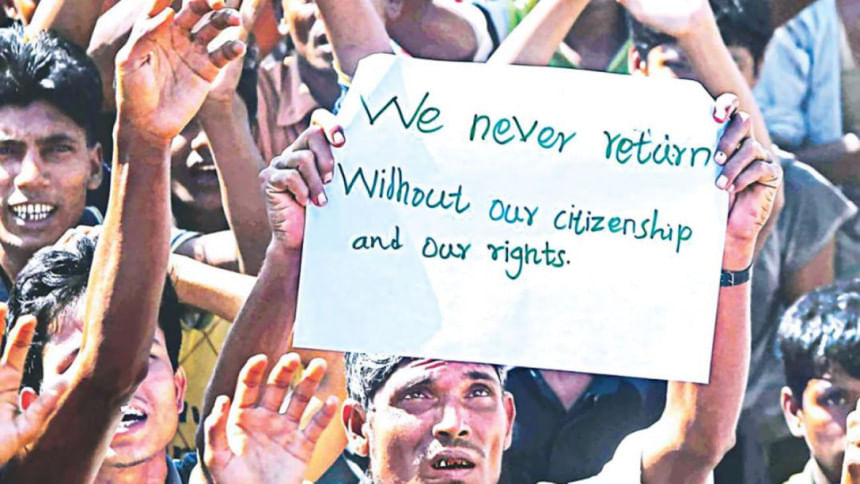ASEAN’s clean chit to Myanmar

A leaked report prepared by the regional body's Emergency Response and Assessment Team (ASEAN-ERAT) on the Rohingya issue exposes a preposterous attempt to hide the facts about the brutality committed by the Myanmar army in Rakhine. In certain instances, the report echoes the position of the Myanmar government. Predictably and deservedly, the said document has been trashed by the international human rights groups. Giving a clean chit to Myanmar through the report, which not only disregards the reality but also prevaricates facts, amounts to validating and legalising acts that have been internationally accepted as ethnic cleansing, and many have described the atrocities perpetrated on the Rohingya ethnic minority as genocide and war crimes.
One wonders why the report fails to make any mention of the killings in the name of going after the insurgents, and what forced the Rohingyas to leave their own country to seek a safe sanctuary across the border. It dilutes the gravity of the crisis, by overlooking the underlying cause of the crisis, preferring to identify the Rohingyas on the basis of religion and not ethnicity, and mentioning a completely wrong figure of the number of refugees in Bangladesh, but instead waxes eloquent about the efforts taken by the Myanmar government to induce the Rohingyas to return, and predicting return of half a million refugees in the next two years. These claims have been completely belied by very recent reports of renewed atrocities in Rakhine. The report mendaciously blamed Bangladesh for the delay in start of repatriation.
Disregarding realities cannot change facts; on the contrary it breeds impunity and helps perpetuate a regime of violence on a minority, whose consequences will have very wide and grave implications. Malaysia has broken away with the tradition among the ASEAN members not to interfere in the internal affairs of another member country and described the issue for what it is. We would hope that other member states would do likewise and bring to bear their influence on Myanmar to create conditions that would help a permanent resolution of the problem by addressing the underlying causes of the crisis of which safe return, and guaranteeing the rights of the Rohingyas like any other Myanmar citizen, are two important elements.

 For all latest news, follow The Daily Star's Google News channel.
For all latest news, follow The Daily Star's Google News channel. 



Comments